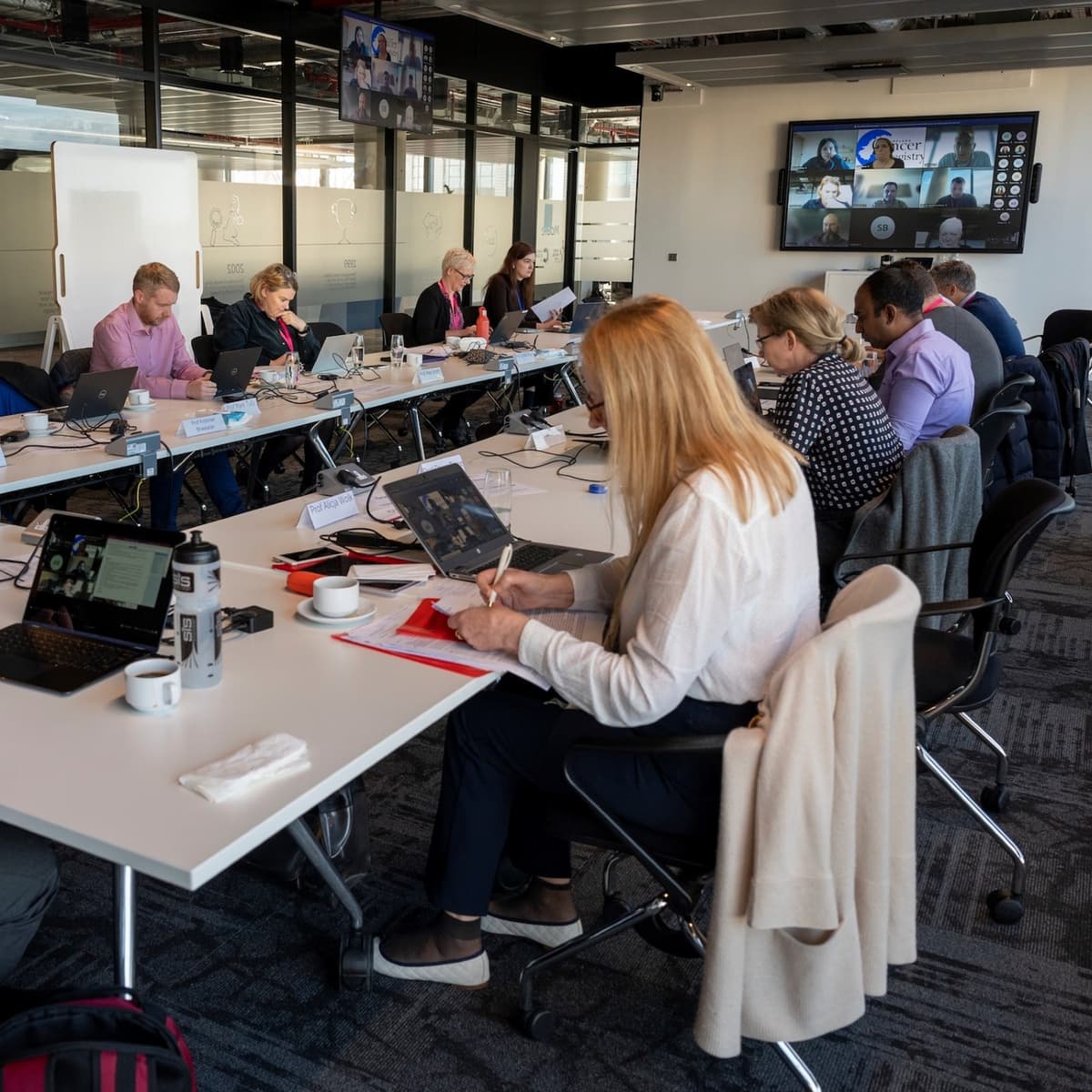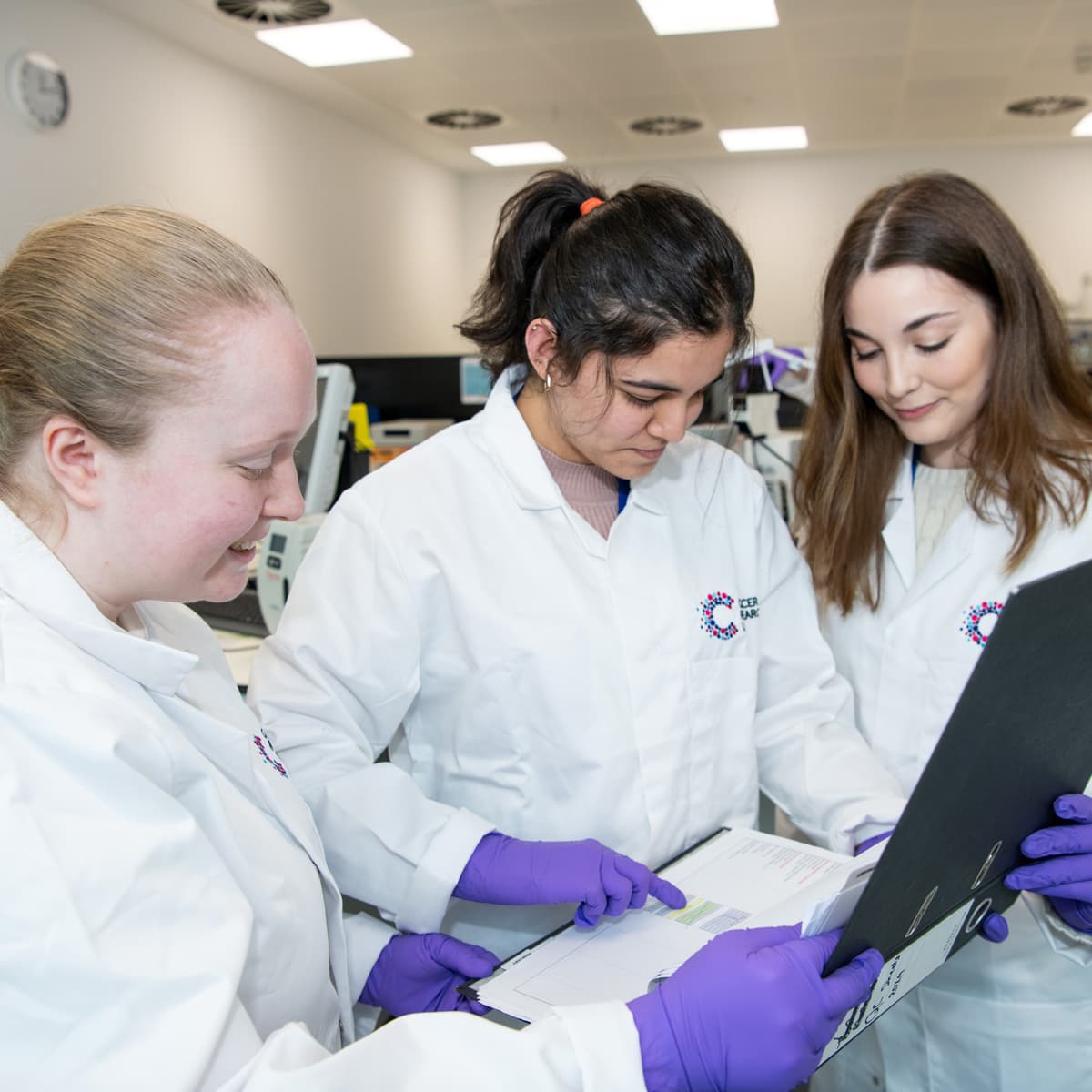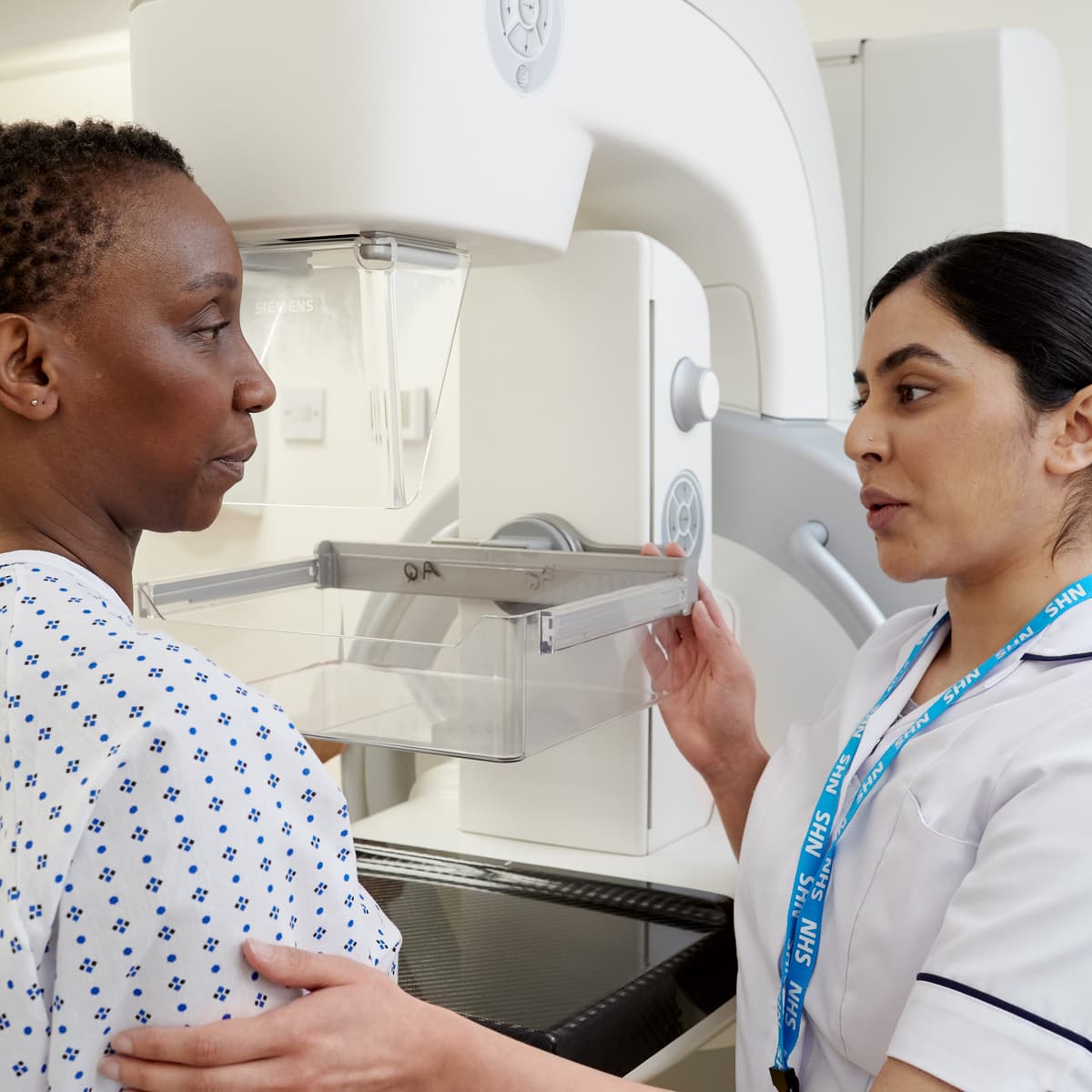The Early Detection and Diagnosis Research Committee (EDDRC) evaluates research looking at ways to detect and diagnose consequential precancerous changes and cancer at the earliest possible point, to intervene as soon as possible and reduce the burden of late-stage disease. This includes research into:
the discovery and validation of signatures for the detection of early cancer/pre-cancer including the development of the technologies to enable this
development and validation of tests and other interventions to enable early detection and diagnosis
clinical trials of early detection and diagnosis technologies and approaches
early detection and diagnosis health systems
clinician behaviour and decision support
understanding and intervening in public behaviour to enhance early detection and diagnosis
health economics of early detection and diagnosis research
detection and diagnosis of relapse/recurrence
We’re particularly interested in proposals addressing areas of strategic priority for us including research in cancers of unmet need such as brain, lung, oesophageal, pancreatic, liver and stomach cancer.
Explore our work in early detection and diagnosisRead our overarching research strategyThis scheme supports specific research projects that aim to have a significant impact on how and when cancer is detected.
This scheme supports established researchers to perform large, integrated and renewable research programmes which have the potential to transform early cancer detection.
This scheme supports researchers at all stages to develop early, novel and outside-the-box ideas and collaborations to build and make progress in the early detection field.
Research that falls outside of EDDRC’s remit may be suitable for submission to one of our other committees.
In particular, proposals related to the development of interventions to reduce risk and prevent the development of primary cancers may be relevant for our sister committee, the Prevention and Population Research Committee (PPRC).
The EDDRC meet twice a year to review applications. With support from their expert peer review panels, they assess applications based on the quality and originality of the proposed work, clinical importance and alignment to our research strategy.
Our Patient and Public Review Panel also review all applications for schemes under the EDDRC to consider potential patient and public impact and involvement plans.
Recommendations from both panels will be considered when making final funding decisions at the committee meeting.
Assessment criteria include:
value of the proposed work in advancing the understanding of early cancer and improving how and when cancer is detected
a strong scientific rationale to support the proposed research proposal, robust experimental design and include novel and innovative approaches
potential for a remarkable impact on cancer detection; designed with a clear line of sight to clinical or population impact and should articulate this pathway and the evidence that will be required to advance along it (appropriate consultation and collaboration with clinicians, population scientists, industrial partners and patients should be included to facilitate this)
suitability and feasibility to carry out the proposed research and access to the resources and facilities required for the successful fulfilment of the award
multidisciplinary, overseas and industrial collaboration is encouraged when appropriate; applications should demonstrate the added value of the proposed collaboration and the individual contributions, as well as the steps taken to ensure an effective collaboration
an excellent track record and potential to produce outstanding results
direct costs of the research, reasonably justified in line with the experimental plans, leveraging existing resources where appropriate
a clear process(es) for making the outputs (including knowledge and expertise) accessible to the scientific community and the public, whilst safeguarding intellectual property, the privacy of patients and confidential data
a clear, thoroughly developed and adequately resourced plan for patient and public involvement which should be evident throughout the proposed duration of the award
The terms of reference for this committee provide guidance for how they should assess all applications.
Read the terms of reference for this committee(PDF, 701 KB)
Professor Cathie Sudlow - University of Edinburgh
Professor Nitzan Rosenfeld - Queen Mary University of London
Professor Pedro Estrela - University of Bath
Professor Patrick Bossuyt - University of Amsterdam
Ally Boyle - Patient and Public Representative
Professor Katherine Brain - Cardiff University
Professor Claude Chelala - Queen Mary University of London
Professor Max Diehn - Stanford University
Professor Ben Glocker - Imperial College London
Professor Georgios (Yoryos) Lyratzopoulos - University College London
Professor Brian Nicholson - University of Oxford
Professor Serena Nik-Zainal - University of Cambridge
Professor Stephen Pereira - University College London
Professor Zoe Pikramenou - University of Birmingham
Professor Shonit Punwani - University College London
Dr Hilary Robbins - IARC (WHO)
Professor Sara Rossana Zanivan - Cancer Research UK Scotland Institute
Professor Greg Rubin - University of Newcastle
Professor Sudha Sundar - University of Birmingham
Lisa Townsend - Patient and Public Representative
To be appointed
Professor Pedro Estrela – University of Bath
Professor Chris Phillips – Imperial College London
Professor Elinor Sawyer – King's College London
Professor Greg Rubin – University of Newcastle
Professor Patrick Bossuyt - University of Amsterdam
Dr Adam Brentnall – Queen Mary, University of London
Professor Katriina Whitaker – University of Surrey
Ally Boyle
Lisa Townsend
Lisa Adam
Dr Alison Allam
Orouba Almilaji
Dr Catherine Biggs
Phil Buck
William Crosbie
Firoza Davies
Mark Edwards
Musa Garba
Elsa Graviil
Jax Hamil
Kate Hawley
Ike Junior
Heena Karania
Angela King
Emily Lam
Liz Middleton
Stella O'Brien
Phil Pocock
Emily Slade
Eve Smyth

Early- to mid-career researchers can apply for the opportunity to observe our panel and committee meetings across our funding remit.

Each year we fund a wide range of new research through our response-mode funding schemes. Find out who has been recently funded and learn more about their research projects.

The early detection and diagnosis of cancer roadmap aims to unite fragmented efforts across the UK and drive progress in early detection and diagnosis.